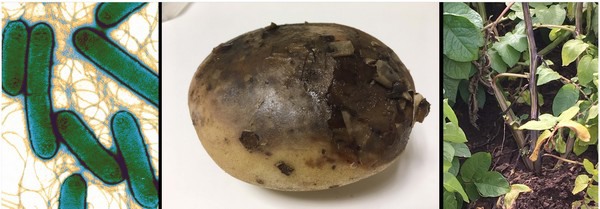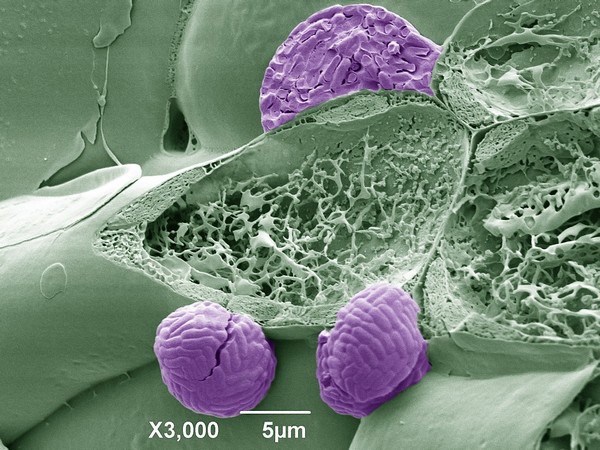A new initiative on bacterial plant diseases has just begun with support from the UK Research and Innovation Strategic Priorities Fund and specifically funded by UKRI-BBSRC, UKRI-NERC, DEFRA and the Scottish Government. This was driven both by the emergence of bacterial plant diseases and by concern about loss of a critical skill base across UK science in the field of bacterial plant pathology. Gone unchecked, a decline in this science base could leave agricultural, horticultural and forestry sectors vulnerable to hard-to-control endemic and invasive bacterial plant pathogens, which are notoriously difficult to control at the best of times.

This initiative, representing an investment of nearly £13 million over the next 3 years, involves eight new research projects across the UK. These new projects build on the recently established BRIGIT project which for the past two years has been tackling the threat posed by the broad host range bacterial pathogen Xylella fastidiosa – arguably one of the biggest and most destructive bacterial diseases threatening the UK. Five of the eight new projects target important pathogens that cause significant losses or pose a threat to UK agricultural and horticultural cropping systems, including Pectobacterium, Ralstonia, Xanthomonas, Liberibacter and Rhizobium radiobacter encompassing crop hosts such as potato, tomato, carrot, brassicas and strawberry. Another project aims to understand how bacterial populations that reside on plant leaf surfaces affect resistance to bacterial canker (caused by Pseudomonas syringae pathovars) in cherry and a further two projects investigate bacterial associations of oak trees and whether their interactions with environmental factors influence the health of this iconic woodland species.
Some key themes run across several of the projects. For example, novel bacterial pathogen control methods will be explored, such as application of phages as biocontrol agents, use of disease suppressive/beneficial microbes to enhance plant health in a range of horticultural, agricultural and arboricultural settings, and identification and screening of disease resistant cultivars to provide new breeding resources for agricultural and horticultural production systems. The often-neglected roles that insect and nematode vectors play in promoting bacterial plant diseases will also be investigated to help predict risk and disease surveillance in carrot and potato production, complementing some of the work in BRIGIT.

A Bacterial Plant Disease Programme co-ordination team has been established to enhance communication across research projects, develop scientific synergies, promote dialogue between science teams and stakeholders and ensure that a variety of impacts from this significant investment contribute to the UK. The co-ordination team is tasked with ensuring that stakeholder views and needs across sectors are integral to the development of science outputs that are effective and useful for industry. To this end, the co-ordination team plan to work closely with the programme funders, policymakers, science teams and various sector stakeholders in order to promote the Bacterial Plant Diseases programme and learn from the relevant sectors about how its contributions can be most useful.
For more information:
BPD-UK
www.bacterialplantdiseases.uk
